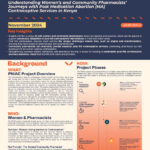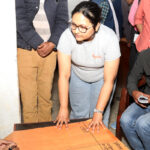
Abortion has been legally accessible in India for over five decades. However, there has never been a large-scale survey that goes beyond legal frameworks to explore public opinion and attitudes toward abortion.


Aditya aka Dhito Raditya, a 20-year-old law student from Central Sulawesi, Indonesia, is passionate about peer mentorship and volunteering. His dedication to making a difference is fueled by the goal of ending child marriage and school dropout in his region.

These learning briefs – a project anchor brief, a user-focused brief, and a pharmacist-focused brief – summarize lessons learned by the PMAC project during multiple phases of the project.

Khusbu Poudel, Ipas Nepal’s program coordinator for climate justice, gender, and sexual and reproductive health and rights, didn’t fully grasp the extent to which women’s and girls’ bodily autonomy is affected during climate crises until she joined Ipas two years ago.

